
Published on Show Me Mizzou April 30, 2024
As the state’s flagship institution of higher education, the University of Missouri has built its reputation by showing the positive effect it has on Missouri and Missourians annually. In the high-priority areas of research, enrollment, student success and status, Mizzou has continued a steady climb in 2024 among peers in the Association of American Universities.
“The University of Missouri contributes to the overall vitality of our state by educating tomorrow’s workforce, conducting innovative research and providing outreach to the citizens of Missouri by sharing our knowledge base,” University of Missouri President Mun Choi says. “With a 25-to-1 return on investment for Missouri taxpayers, an investment in MU is an investment in our state.”
For the past decade, Choi adds, “Mizzou has grown our research enterprise and delivered more impact as Missouri’s flagship, land-grant university. These record expenditures show our commitment to creating breakthroughs that benefit our state while also attracting new research funding and world-class faculty to campus.”
Read on for the latest figures that illustrate Mizzou’s comprehensive value and mile-markers of success.
Research
NSF research expenditures rankings
The University of Missouri set a record $462 million for research expenditures in fiscal year 2023, as submitted to the National Science Foundation’s Higher Education Research and Development (HERD) survey. The National Science Foundation is an independent agency of the United States federal government that supports fundamental research and education in all the nonmedical fields of science and engineering.
• MU expenditures growth is 75% since 2015 (increasing market share).
• MU expenditures growth is #8 among 70 AAU universities in percentage growth since 2015.
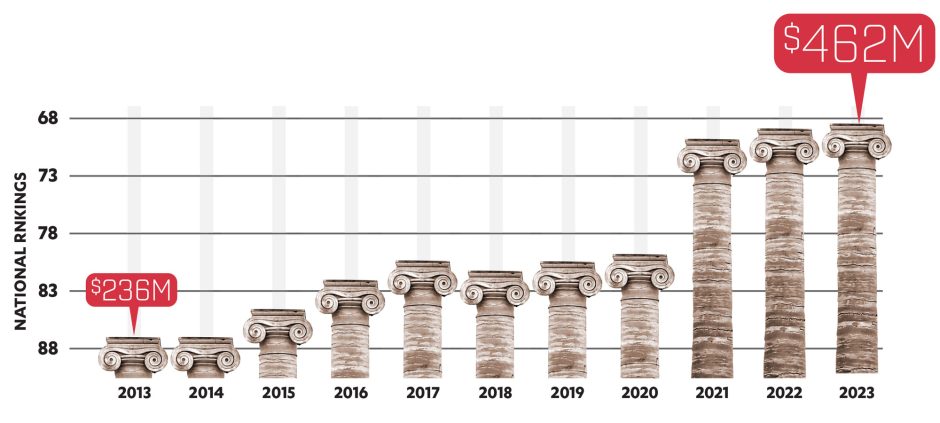
Association of American Universities performance
Founded in 1900, the AAU is composed of the United States’ leading research universities. Its 71 member institutions transform lives through education, research and innovation. MU has continued to improve its ranking among elite peer universities through focused investments and successes.
A roaring engine
MU contributes $5 billion in economic impact to the state, according to a recent study commissioned by the university. Mizzou fuels nearly 50,000 jobs, $281 million in state and local taxes and nearly $1 billion in research alone. Through a three-pronged strategy, Mizzou and Missouri have reaped the benefits.
MizzouForward
As the boldest investment in its history, MizzouForward is a 10-year, $1.5 billion transformational effort that focuses on faculty expansion, infrastructure growth and student success to ensure the university is providing world-class education and research.
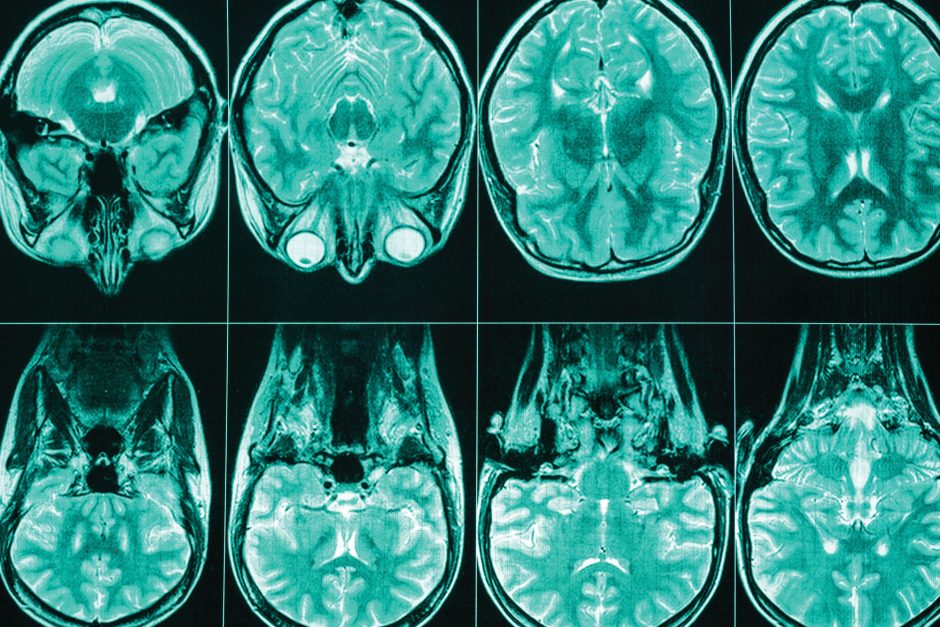
MURR: The University of Missouri Research Reactor
The University of Missouri Research Reactor (MURR) improves and saves lives every day. More than 1.6 million patients last year were diagnosed or treated using radioisotopes produced at MURR. MU plans to build a new, more sophisticated reactor — NextGen MURR — to expand the university’s critical cancer-fighting research and production. The goal is to create an innovation hub for nuclear medicine to ensure a reliable domestic source of lifesaving radioisotopes.
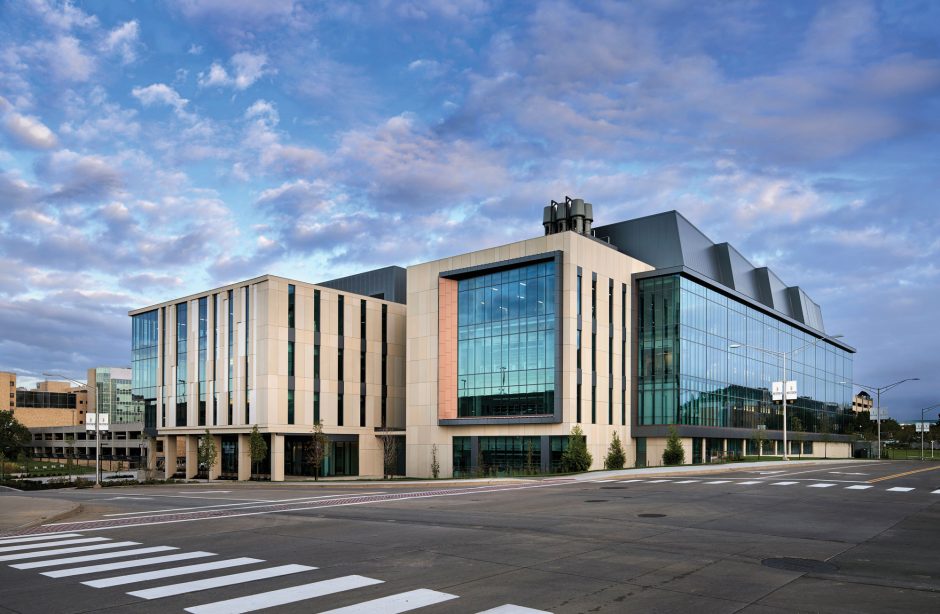
NextGen Precision Health initiative
The NextGen Precision Health initiative brings together innovators from the UM System’s four research universities, MU Health Care, MU Extension and industry partners in pursuit of life-changing precision health advancements. The initiative is anchored at the Roy Blunt NextGen Precision Health building in Columbia, a state-of-the-art, $221 million, 265,000-square-foot research facility.
Student success
Record number of applicants
The University of Missouri surpassed the previous 2015 record for number of applicants. The high marks are due in part to Mizzou’s consistent ranking as the best value among Midwest and neighboring public flagship universities and significant investments in student success and positive outcomes.
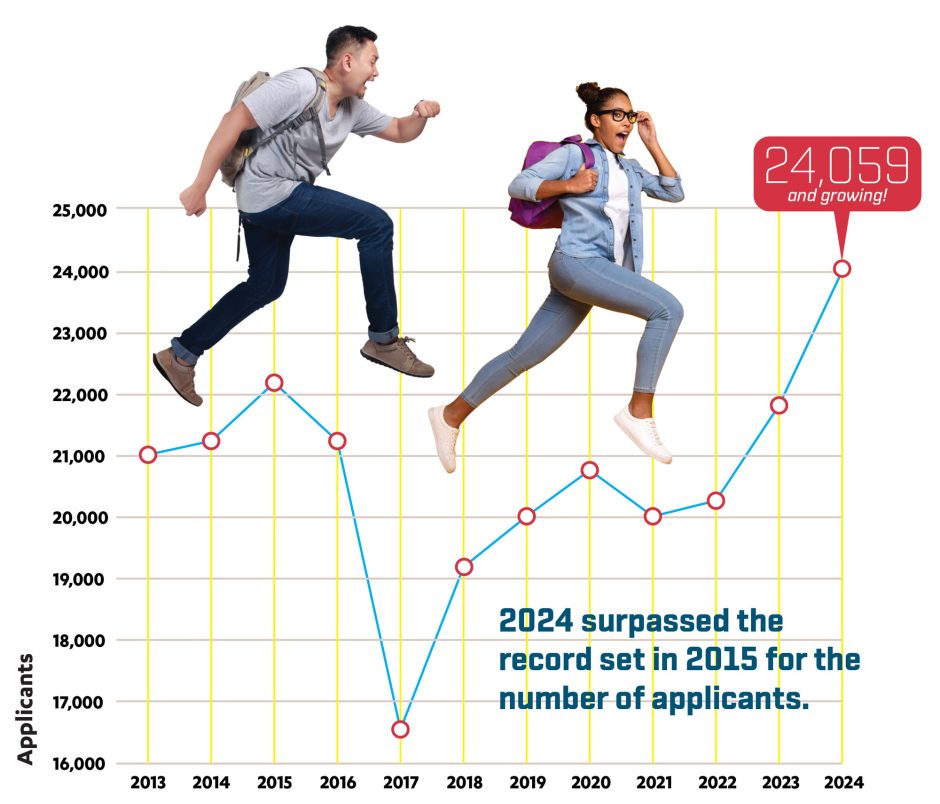
Retention and graduation rates
Students aren’t simply applying and enrolling at Mizzou — they’re thriving. Freshmen retention rate refers to the percentage of first-time full-time students who return for their second year. Once MU students graduate, which they’re also doing at record rates, they have a 95.2% chance of a successful outcome. “Successful” is defined as a graduate who goes on to employment, continuing education, military and/or service programs.
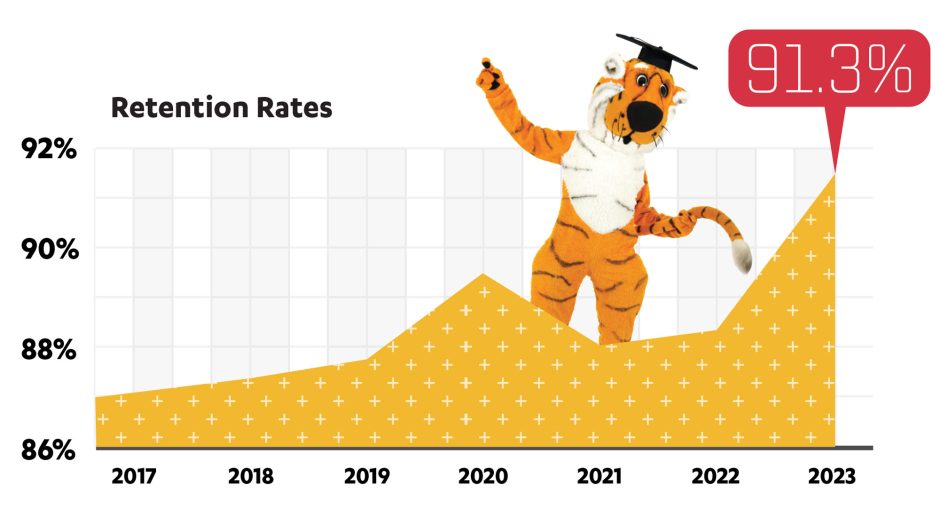
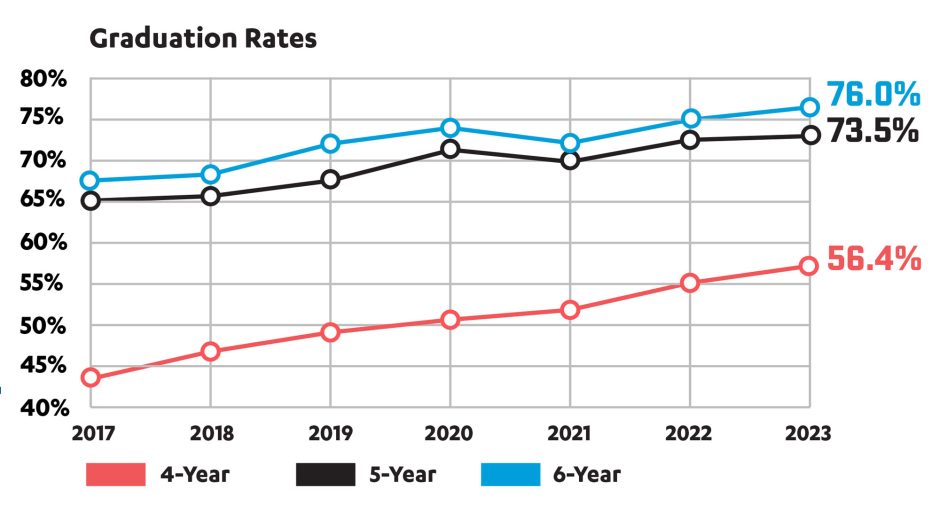
A grant-fueled renaissance
Is spring the season of renewal? Undoubtedly. And this spring, a bounty of grants is growing knowledge across the MU campus. Below are some highlights.

Top crops
Rob Myers, an adjunct professor in the College of Agriculture, Food, and Natural Resources, and director of the Center for Regenerative Agriculture, earned $35 million from the U.S. Department of Agriculture. It’s the largest federal research, education and extension grant ever awarded to an MU faculty member. The grant aims to help MU double cover crop acreage in the U.S. by 2030. Myers also secured a five-year USDA National Institute of Food and Agriculture commitment supporting the doubling of cover crop seed production.

Cancer Moonshot
A $20 million Advanced Research Projects Agency for Health grant supports researcher Paul de Figueiredo's project aimed at reducing cancer deaths and enhancing patients' quality of life. Aligned with President Joe Biden's Unity Agenda and Cancer Moonshot goals, de Figueiredo's research integrates technology and biomedical advances to create a single-dose treatment stimulating cancer patients' immune systems.

Kids Vids
MU’s efforts to develop and improve training videos for childhood care providers and professionals have earned a $7.5 million grant. Mizzou Academy, an online school within the College of Education and Human Development, collaborates with the Missouri Department of Elementary and Secondary Education to make required training more engaging and accessible.

Science and arts
A $300,000 grant from the National Endowment for the Arts supports MU education policy expert Brian Kisida. An assistant professor in the Truman School of Public Affairs, Kisida is establishing a National Endowment for the Arts Research Lab to study the intersection of arts, humanities and civic engagement.

Basin beat
The Walton Family Foundation awarded a $2.4 million grant to expand the Missouri School of Journalism’s Mississippi River Basin Ag and Water Desk collaborative. The desk has developed a team of journalists stationed across the region to explore water, agricultural and environmental stories.
To read more articles like this, become a Mizzou Alumni Association member and receive MIZZOU magazine in your mailbox. Click here to join.



